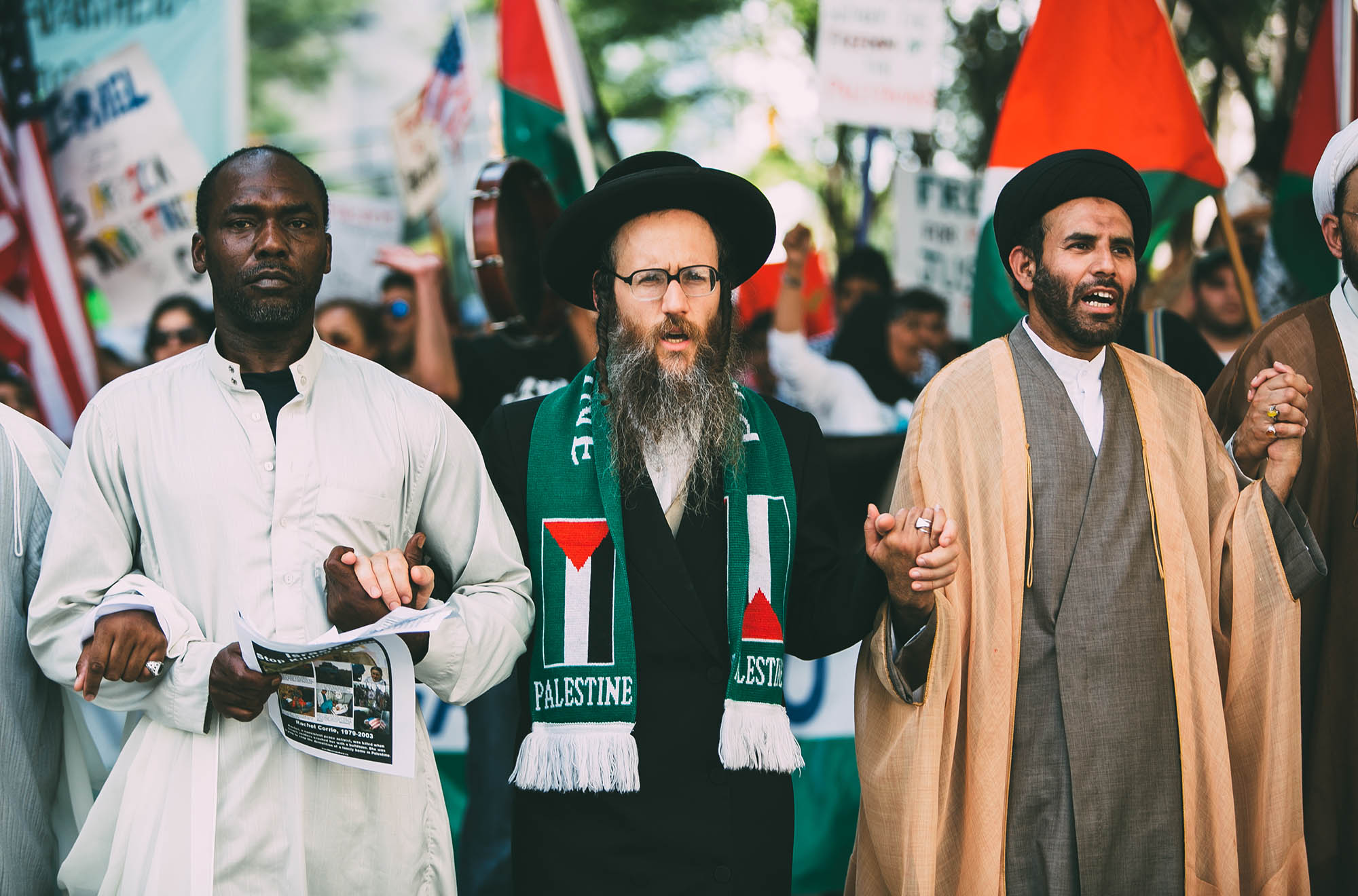The sharia enshrines in religious law medieval Islam’s vision of a centralized, universal Muslim state. America’s Center for Security Policy (CSP) labels this totalitarian. All Muslims would reject that. Some go farther, viewing the sharia as problematic. They may not quite renounce the sharia per se, but they want to reformulate their faith to some degree. Today’s reformist Muslims insist that Islam’s violence is strictly self-defensive. In fact, most Muslims in the West respond to the violence of those Muslim groups who frequently make it into the news–like al-Qaeda, al-Shabab, ISIS and Boko Haram–by saying that Muslims are only allowed to engage in violence self-defensively. This is even true of many traditional Muslims, though, when confronted by the sharia’s teachings, they have to admit that it prescribes more than self-defensive violence.
Most non-Muslims respond in one of two ways to the reformists’ view. Liberals, like Karen Armstrong, gladly take it to be representative of “true” Islam and ignore any traditional Muslims who say otherwise. By contrast, most conservatives in the West—many Christians among them—are highly skeptical of reformist Muslims. They ask why we should believe that Muslims truly reject the sharia’s violence, variously explaining that:
- All Muslims are inherently violent, whether they know it or not.
- All Muslims who claim to be nonviolent are lying, biding their time till there are enough of them to use our freedoms against us.
- If there are nonviolent Muslims, they could later be pressed to embrace the sharia’s violence.
The first assumption is patently false. All Muslims are not inherently violent, any more than all Christians are inherently nonviolent. It’s one thing to say, Following your founder, you’ll do this. It’s another to think there’s anything to guarantee that a religious leader’s followers will follow his teachings. For example, how many professing Christians do you know who rarely or never follow the Sermon on the Mount?
Every religion lends itself to multiple interpretations, some more grounded in history than others. As non-Muslims, we’re free to discuss with Muslim friends how the sharia promotes their community’s violent expansion, but not to decide which are “true Muslims.”
The second assumption is more sinister. It’s simply not true that all Muslims are liars, as some say. Some Muslims are undoubtedly being disingenous on this point, but some Muslims are as honest as the day is long. To assume that all Muslims claiming to be nonviolent are lying denies Muslims the dignity due everyone created in God’s image, effectively dehumanizing them. It also preempts the openness needed for healthy relationship to grow. And pragmatically speaking, relationship is vital for us to move forward.
Of course, not all Muslims are trustworthy–just as not all Christians are. But we must take everyone’s claims at face value until she gives us good reason not to do so.[2]
There are doubtless some Muslims biding their time in the hopes of being part of a religious wave that turns America Muslim. But that doesn’t license us to suspect all Muslims of doing so. Instead of rushing to judgment, we must give them the benefit of the doubt (Mt. 7:1). As Donna Hicks says, we must “start with the premise that others have good motives and are acting with integrity.”[1]
Jesus called us to be shrewd as serpents and harmless as doves (Mt. 10:16). But our shrewdness must not encroach on our love, which, remember, “believes all things” (1 Cor. 13:7). America’s current political environment creates an evil atmosphere of suspicion toward Muslims, which feeds prejudice and profiling. From a biblical perspective, anyone who gives in to that needs to know that they’re following the devil, the Accuser, not the Messiah, who refused to break a bruised reed or snuff out a smoldering candle (Isa. 42:3).
The third concern is actually quite reasonable. Coercion happens in all sorts of groups. Cultures with an honor-shame orientation—which Muslim cultures clearly have—routinely pressure people into conforming. Also, with coercion inherent in the sharia’s geopolitical vision, Muslims can think they’re pleasing God by coercing peace-loving Muslims to embrace violence for the Cause of God. This has often happened in history.
However, that awareness should prompt us, as Christians, not to disengage with Muslims, but rather to pray for them and engage with them where they are now—not on the basis of what we fear they might someday do.
What about organizations like the Muslim Brotherhood? Must we unquestioningly accept their claims to nonviolence? An excellent question for another article…
[1] Donna Hicks, Dignity: Its Essential Role in Resolving Conflict (New Haven, CT: Yale University Press, ) 75.
[2] Here some conservatives invoke the Muslim doctrine of taqiyya, or “the strategic use of deceit,” to justify making disbelief our default response to Muslims. But it’s one thing to keep in mind that a person could be deceiving us and something else entirely to assume that everything he speaks is deception. We all know, for example, that when put on the spot, politicians often smokescreen or otherwise twist the facts. But that doesn’t justify disbelieving everything every politician ever says. The fact that a politician may be lying only means we must be cautious about naively trusting her. It’s true that some Muslim theologians advise their followers to lie when “necessary” and that some of do so with gusto. But that’s not all Muslims whenever they’re asked about embarrassing aspects of their faith. So in the absence of compelling evidence to the contrary, we should give all Muslims the benefit of the doubt, just as we want them to do to us (Mt. 7:12).




Leave a Reply